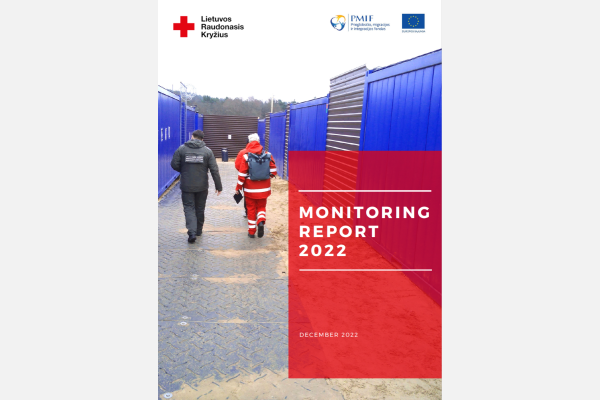Repository of Practices

Asylum and Migration Programme of the Lithuanian Red Cross (LRC)
Dates
Type of practice
Geographic scope
Country:
Regions:
Sub Regions:
Local:
Summary
In 2021, political tensions between Lithuania and Belarus flared, precipitating a crisis at the borders during which more than 4 000 migrants largely from the Middle East and South Asia were stranded facing inadequate food, water, clothing, or shelter to cope with the difficult conditions and harsh weather. The politically motivated standoff between the governments of Belarus and Lithuania, combined with unfavourable views towards migrants common in both countries created a highly challenging and politically charged environment in which migrants faced significant risks. As the Lithuanian Red Cross had operated a migration program since 1997 and had agreements with various institutions, it was prepared to take action and respond to the needs of migrants. When the crisis began in June 2021, the Ministry of the Interior of Lithuania initially declined the support of the Lithuanian Red Cross. Therefore, during this month, the Lithuanian Red Cross invited other national organisations (including Food Bank, the Order of Malta, and Caritas Lithuania) to join efforts and to establish an Operations Centre together to respond to the humanitarian needs of the people who had entered Lithuania. Several months later in August, the Red Cross began cooperating with different ministries on the issue of the large number of people in the country, as the government recognised the Red Cross as a significant stakeholder leading the humanitarian response to the migrants. As part of its response to the situation, the Lithuanian Red Cross provided humanitarian assistance in the form of non-food items, medicine, and food, as well as mental health and psychosocial support (MHPSS). Through the support of UNHCR, the Lithuanian Red Cross also provided monitoring and legal assistance. The Red Cross had mobile teams who were going onto sites where migrants were present and identifying protection issues. Each mobile team contained at least one psychologist who went to centres to provide psychological assistance. The Lithuanian Red Cross sought to collect data on the sex and age of migrants, and to communicate that certain groups such as children and women were presenting with vulnerabilities. The Lithuanian Red Cross also developed thematic reports documenting issues around access to healthcare, access to information, and the situation of women, minors, and LGBTQI+ individuals. These report findings were shared and discussed with institutions, and in some situations, this helped to move vulnerable people (such as LGBTQI+ individuals) into different, safe accommodation. However, not all State stakeholders had a protection mindset and they cast doubt on whether these individuals were truly in need of specialised support.
Organizations
Main Implementing Organization(s)
Detailed Information
Partner/Donor Organizations
Benefit and Impact
Key Lessons
Recommendations(if the practice is to be replicated)
Additionally, the Red Cross emphasises that humanitarian and civil society organisations should be included in the response, as well as in disaster preparedness and planning. Formal agreements with State institutions are important to facilitate this.
Finally, the Lithuanian Red Cross stresses that having adequate cultural mediators--individuals who are trained and can provide interpretation--of both genders in advance is important.
Innovation
Additional Resources
Date submitted:
Disclaimer: The content of this practice reflects the views of the implementers and does not necessarily reflect the views of the United Nations, the United Nations Network on Migration, and its members.
More Related Practices:
- Comité de Cultura de Paz y Derechos Humanos
- Strengthening the capacities and frameworks to collect data and evidence on migration, the environment and climate change (MECC) in Mexico
- Encuesta Nacional Migrante de la Argentina (ENMA)
- A Gender-Focused Qualitative Study on Health Care-Seeking Behavior and Access to Tuberculosis Treatment among Mobile Populations from Moldova
- IOM’s Regional Programme Strengthens the Protection of Child Victims across North Africa and Key Routes
Peer Reviewer Feedback:
*References to Kosovo shall be understood to be in the context of United Nations Security Council resolution 1244 (1999).
Newsletter
Subscribe to our newsletter.